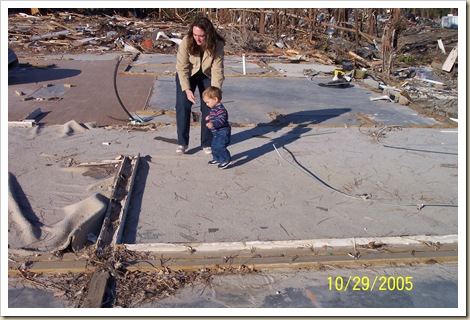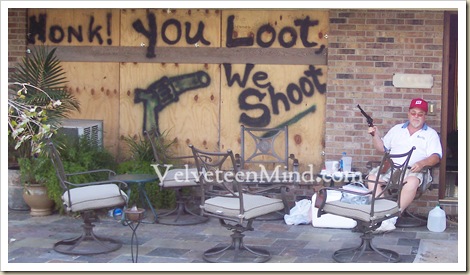{Audioblog} Download 'Compassion Fatigue: Playing the Victim Card for Good' read by the author
...
Exhaustion finally caught up with me. Little sleep thanks to round-the-clock nursing of a daughter that saves me from bitterness with her midnight smile alone, two handsy boys in pre-K and elementary school, and a tendency to play a stay-at-home martyr who takes care of herself last, all added up to what felt like the flu this week.
Risking even a glance at a computer when I’m feeling like that is risking a visceral “oh, screw it all” response and going Social Media Cold Turkey for months. Liken it to those completely irrational middle-of-the-night thoughts that escalate problems into disasters, which the light of the morning dissipates back into minor complications. When I’m feeling sick, I tend to feel overwhelmed and dismissive.
The last couple of weeks have left me feeling vulnerable to dismissing my interest in social media because of one feeling in particular: Compassion fatigue.
My thanks to Deb on the Rocks for reminding me of this phrase during a recent trip. A turn of phrase I had become so used to hearing when I worked in mental health, but one that had been long filed and forgotten from a blissful lack of relevance to my life. It’s relevant again, and not just to me.
Haiti is collapsing. California is flooding. Mothers are losing their children. Children are losing their fathers. Societal and familial infrastructures seem so fragile that helping feels like the ineffectual paper towel in a hurricane.
As traditional and social media shrinks our world down to the size of a BlackBerry screen, we are inundated with suffering. A day without disaster is notable in and of itself. Matt Lauer talking travel tips seems almost offensively naive. Surely there is a tragic story that could better use The Today Show’s valuable airtime?
I’m shaking my head. Give me trivial travel tips about Greece. Please. I’ve had enough. I need carefully coiffed hair and whitened smiles on my screen for a breather.
Journalism analysts argue that the media has caused widespread compassion fatigue in society by saturating newspapers and news shows with decontextualized images and stories of suffering. This has caused the public to become cynical, or become resistant to helping people who are suffering…
Compassion fatigue can be seen in the resistance of the general public to give money to charity or other good causes due to overexposure… "Overexposure" in this context refers to the repeated solicitation of donations or voluntary efforts from civilians by charitable agencies, often triggered by natural disasters, or disasters of a large scale. Some people become frustrated by constantly being solicited for donations...
“Overexposure” is an understatement. In social media networking alone, we are saturated with calls for help. $5 here for a sick kid, $10 there for breast cancer research, “Donations for Comments!” and challenges to our moral compass if we don’t publicly declare our support, either financially or via our time and energy.
It’s enough to make you want to turn off the computer. Ahem.
This is where I insert my well-heard “And that is why I lend my support to the American Red Cross and Tide’s Loads of Hope program!”
Good grief. Even I’m tired of hearing myself say that.
I understand the desire to help. Even more so, I understand the desire to do something. That is, in fact, why I lend my financial support and energy to the Red Cross and Loads of Hope, respectively. I’ve seen what they do.
The only opinion I’ve shared about the disaster in Haiti is that while I appreciate the desire to physically lend a hand, Haiti needs your relief donations more than your warm embrace and strong back right now. I recommended the Red Cross.
I’ve seen what your Red Cross donations do first hand. I’ve accepted help from the Red Cross and I know what it feels like to see their red cross emblazoned white truck approach your street after a natural disaster.
Likewise, I’ve stood in front of families that have shoved their pride into their pockets long enough to let Tide wash their clothes at the Loads of Hope truck. I’ve watched those families circle the truck, trying to decide if they will stop or not. I’ve seen them approach the staff, empty-handed, ask very off-handedly “Soooo, what’s going on here?” as though they were just passing by, and then just so happen to have loads of dirty clothes in their car.
Asking for help can be difficult. Accepting help can be immensely difficult.
For three days in New Orleans this December, I worked alongside Mishelle from Secret Agent Mama and Deb on the Rocks and watched the Loads of Hope staff diffuse the shame and anger and pain associated with need. With deft hands, they unburdened families of that need, if only for a week’s worth of clean clothes.
I know you want to do something rather than just give. I think that’s why so many of you spent your time participating in our Loads of Hope for the Holidays campaign sponsored by Tide via Blog Nosh Magazine and Velveteen Mind this December. For your time, energy and heartfelt commitment, I am endlessly grateful. Your generosity warmed me as I stood in the New Orleans rain and watched the results of your contributions wash away the edge of need.
And yet, even among people that are well-versed in compassion and empathy, I faced down compassion fatigue in New Orleans. It was the glazed look among local volunteers when I assured them that I had suffered loss in Hurricane Katrina and wasn’t merely a sensationalist looking for a story. It was the absent nod among hurricane survivors, accompanied by a mumbled, “Yeah, everyone lost everything.” because we’ve heard it all before.
It was then that I pulled out my big gun. It was then that I did the one thing that I knew would snap them out of their mile-long stare: I played my victim card. Literally. In response to their “I’ve heard this story before” expression, I would hand them this:
My victim card. It’s a dirty one. I don’t play it often, mostly just when I’m writing about a cause here, but when I play, I play for keeps.
And they would snap out of it. Their eyes would focus and they would meet my gaze with an entirely different level of commitment. They would remember that this threadworn story is more than platitudes and exaggerations designed to win sympathy and crack open your wallet. They would snap out of the fog of compassion fatigue.
This is where I insert my well-heard “And that is why I lend my support to the American Red Cross and Tide’s Loads of Hope program!” And by God, I want for you to hear me. Let me be your surrogate to knowing that your compassion is delivered by practiced hand by these organizations.
Do you want to do something? Do you want to help, sure, but can’t shake the longing to see your efforts transform directly into deliverance? I understand this. In the pit of my stomach, I promise you, I understand.
But that’s not always how need works.
Donate $10 to the Red Cross to help Haiti. Buy a Loads of Hope t-shirt so that Tide can continue to spin laundry detergent into dignity. Whatever makes sense to you. No, it may not be appropriate for you to lift a piece of rubble in person or load a washer yourself right now, but your support makes those efforts possible on a much broader scale than your own physical presence can.
It counts. I promise. Your compassion counts.


Related posts:
Who Dat! Celebrating with New Orleans, Remembering Visiting with Tide Loads of Hope - Deb on the Rocks“Once you choose hope, anything’s possible.”—Christopher Reeve - Secret Agent Mama
Tide Loads of Hope for the Holidays Carnival - Blog Nosh Magazine
Haiti needs your relief donations more than your warm embrace and strong back - Content Parlor of Velveteen Mind
Don't Go To Haiti - Good Intentions Are Not Enough
(1-27-10 update: found this link via Sally Lee, Editorial Director of Meredith publishing group. covers the logistical side of my emotional argument.)

![]() Don't miss an update! Sign up for free delivery of new posts from Velveteen Mind via email (recommended) or feed reader.
Don't miss an update! Sign up for free delivery of new posts from Velveteen Mind via email (recommended) or feed reader.


 Subscribe to Velveteen Mind on
Subscribe to Velveteen Mind on 










 Writer. Mother.
Writer. Mother.
